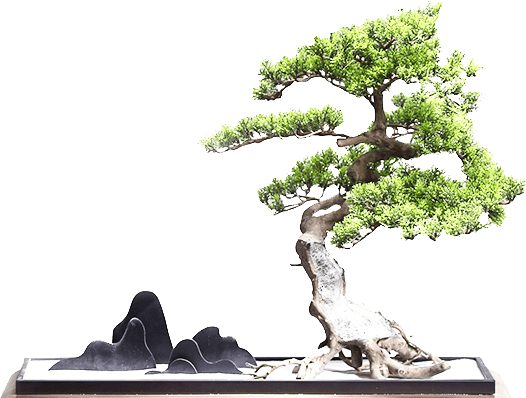8 Properties of Glass Ionomer Cement
- Time of issue:2023-05-30 13:17
- Views:
(Summary description)
8 Properties of Glass Ionomer Cement
- Categories:Industry News
- Time of issue:2023-05-30 13:17
- Views:
1.Color
Compared with polyacrylic anhydride cement, due to the use of glass powder, glass ionomer cement has translucency and similar color to teeth, so it can be used as a restoration of missing anterior teeth. Photocuring chemical glass ionomer cement can provide a variety of materials in different colors to choose from, and the color of the restoration can be used to match the color of the tooth to achieve the purpose of aesthetic restoration. After the general powder-type glass ionomer cement is solidified, the material contains a lot of air bubbles, which is not easy to spray, and it is easy to adhere to the pigment, which affects the appearance. Single-viscosity materials contain less air bubbles and have significantly improved luminosity. However, such materials are still susceptible to staining by coffee, tea etc.
2.Adhesiveness
The bonding strength of general glass ionomer cement to enamel is 30-50MPa, and the bonding strength to dentin is 20-40Mpa. The bonding strength of light-cured glass ionomer cement to enamel can reach 60MPa, and the bonding strength to dentin The bonding strength can reach 55Mpa. After using the surface treatment agent, the bonding strength with enamel can reach 100MPa, and the bonding strength with dentin can reach 75Mpa. Using a primer and an adhesive, the bonding strength of the single-paste light-cured glass ionomer cement (composite) to the enamel can reach 10-17 MPa, and the bonding strength to the dentin can reach 7-10 MPa. 12MPa.
3.Water absorption and dissolution
Generally, glass ionomer cement has strong water absorption during the solidification process. After water absorption, the material is white and chalky, with increased solubility and easy erosion. Only after solidification can it have good strength and low dissolution rate. Therefore, after filling teeth clinically, it is generally necessary to coat a layer of protective agent on the surface of the material to prevent contact with moisture during the solidification process. The water absorption rate (6 months) of general glass ionomer cement is 5% to 9%, and the dissolution rate is 0.07% to 0.35%. The water absorption rate can reach 89%, and the water absorption rate is 93% in 6 months. The water absorption rate of single-paste light-curing glass ionomer cement is relatively small, and the water absorption rate is 30% in 6 months. The volume expansion of glass ionomer cement after absorbing water can compensate for the curing process. volume shrinkage in the restoration, improving the marginal sealing performance of the restoration.
4.Strength
The compressive strength of general glass ionomer cement can reach 100-140MPa 1 hour after solidification, and 140-200MPa after 24 hours, and the strength reaches the maximum after complete solidification (several days). The 24-hour compressive strength of light-cured glass ionomer cement can reach 200-300MPa, especially the single paste type has the best strength. The mechanical properties of the composite are between glass ionomer cement and composite resin.
5.Solidification characteristics
Generally, the initial solidification time is 25 minutes to 60 minutes. After 24 hours, it will be completely cured after 24 hours, and it will be completely cured after 7 days. Due to the introduction of light-curable resin components, light-curable glass ionomer cement has a high degree of early curing, good strength, and is not afraid of water.
6.Closed edges
Because the glass ionomer cement has a certain expansion after absorbing water and has a certain chemical adhesion to the teeth, the edge closure of the material is better, which is better than zinc phosphate cement, and the light-curing glass ionomer cement is better than ordinary glass ionomer cement. Body cement, especially the edge sealing performance of single paste glass ionomer cement is the best.
7.Pulp irritation
Like zinc polycarboxylate cements, glass ionomer cements are less irritating to the pulp. When the dentin thickness is not less than 0.1mm, the material has almost no stimulating effect on the pulp.
8.Anti-caries effect
Most of the current glass ionomer cements contain fluoride, which can slowly release fluoride ions in oral saliva, which is also one of the advantages of this material. The released fluoride ions can be exchanged with the hydroxyl groups in the hydroxyapatite in the adjacent tooth hard tissue, increasing the fluorine content in the tooth hard tissue, thereby improving the ability of the tooth to resist caries.
Zogear Glass Ionomer Cement:https://www.zogear.com/product/153.html
Related News
Shanghai ZOGEAR Industries Co.,Ltd
Rm 2007-2015,Building 2,Hunan Road,Shanghai,China
+86-18001986833

Copyright © Shanghai ZOGEAR Industries Co., Ltd all rights reserved 沪ICP备17024223号-2 Powered by:www.xinnet.com
Copyright © 2021 Shanghai ZOGEAR Industries Co., Ltd
-

+86-18001986833
-
-
+86-18001986833



